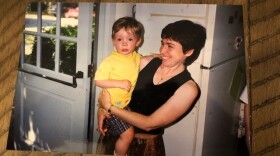
Tara Boyle
Tara Boyle is the supervising producer of NPR's Hidden Brain. In this role, Boyle oversees the production of both the Hidden Brain radio show and podcast, providing editorial guidance and support to host Shankar Vedantam and the shows' producers. Boyle also coordinates Shankar's Hidden Brain segments on Morning Edition and other NPR shows, and oversees collaborations with partners both internal and external to NPR. Previously, Boyle spent a decade at WAMU, the NPR station in Washington, D.C. She has reported for The Boston Globe, and began her career in public radio at WBUR in Boston.
-
Physician Abraham Verghese reflects on a defining moment in 1985, when one of his terminally ill patients reminded him to follow his dreams.
-
Nicole George-O'Brien was driving over a bridge when she experienced a seizure. She woke up in the hospital, worried that she'd hurt someone, but found out a stranger helped her and others that day.
-
When Vanessa Foster was stranded in the middle of Alaska, a stranger with bright blue eyes stopped to give her a ride, and changed her life.
-
Stephanie Cole never forgot one tiny moment during her first day at a new job, when a stranger showed her kindness.
-
When Kate Baker's toddler experienced a seizure during a transatlantic flight, she nearly shut down. But she received comfort from an unexpected group of passengers.
-
Karl Goldstein nearly gave up playing the piano, but a few words from a tough music teacher put him on a lifelong path in music.
-
If you listen closely to giggles, guffaws, and polite chuckles, you can discern a huge amount of information about people and their relationships with each other. This week, we talk with neuroscientist Sophie Scott about the many shades of laughter, from cackles of delight among close friends to the "canned" mirth of TV laugh tracks.
-
A virus is more than a biological organism. It's a social organism. Historian Nancy Bristow shares the lessons about human behavior that we can take away from a century-old pandemic.
-
Where is the line between what is real and what is imaginary? It seems like an easy question to answer: if you can see it, hear it, or touch it, then it's real, right? But what if this way of thinking is limiting one of the greatest gifts of the mind? This week, we meet people who experience the invisible as real, and learn how they hone their imaginations to see the world with new eyes.
-
Last week, we spoke with psychologist Sheldon Solomon about the fear of death and how it shapes our actions. This week, we pivot from psychology and politics to religion and history as we explore how people have tried to resolve these fears. We talk with philosopher Stephen Cave about the ways we assure ourselves that death is not really the end.










